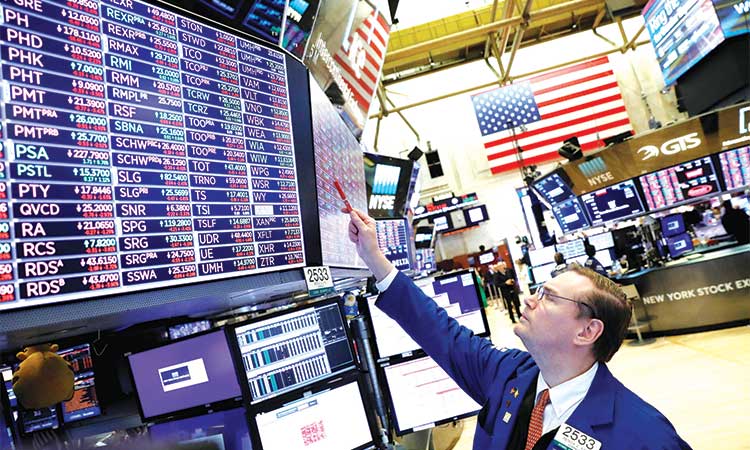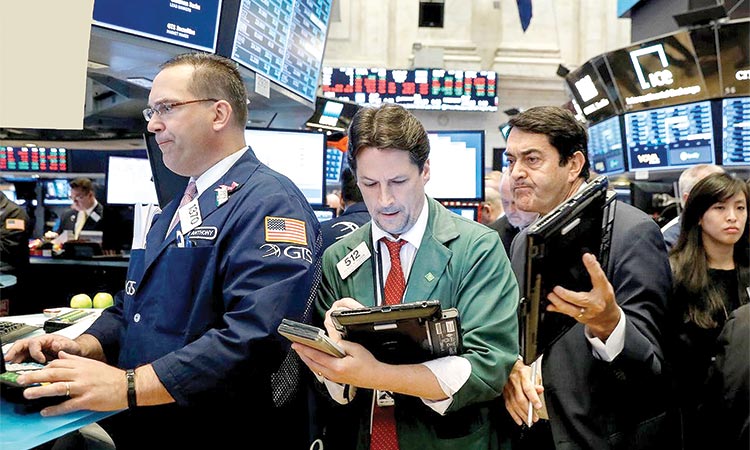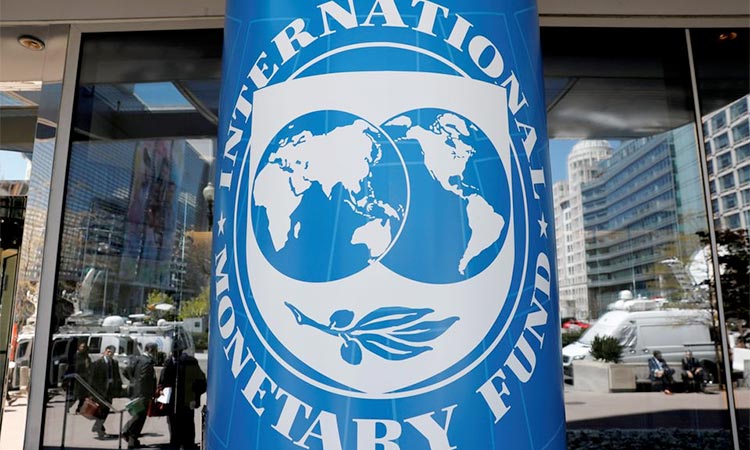Global stock markets nosedive on fears over spiking inflation

Picture used for illustrative purpose.
“European stocks are tanking lower after a weak handover from Wall Street” on Monday, said OANDA analyst Sophie Griffiths.
“Inflation concerns sent tech stocks tumbling overnight, and the sector has come under pressure in Europe today.”
Traders are fearful that surging inflation could force the world’s central banks to wind back ultra-loose monetary policies earlier than forecast and damage post-Covid recovery.
Asia took a battering after New York was gripped Monday by a wave of selling, particularly in the tech sector which is vulnerable to higher borrowing costs due to the potential effect on future earnings and cash flow.
The Dow snapped a three-day streak of records and the S&P 500 lost more than one percent, while the Nasdaq shed 2.6 percent.
Asia followed the lead, with tech firms at the forefront of the selling.
Tokyo and Taipei each dropped more than 3.0 percent, while Hong Kong was off 2.0 percent.
Wall Street continued to fall at the opening bell on Tuesday, with the Dow dropping 0.9 percent. The S&P 500 lost 1.3 percent and the Nasdaq tumbled 2.2 percent.
Analyst Patrick O’Hare at Briefing.com said that markets are “wrestling with the general sentiment that most stocks are overextended and due for a pullback, if not an actual correction.”
US stock indices have soared to new heights on the prospects of a rebound in the economy, but there are concerns that share prices may have risen too far.
“This is a cutting of the fat,” O’Hare said. “It’s also a reminder that valuation always matters.”
All eyes are now on the release this week of crucial data on US retail sales and consumer prices, with expectations for a sharp rise as the world’s top economy reopens and vaccines allow people to return to a sense of normality.
A massive miss on US jobs creation last week that indicated the recovery was not going to be as smooth as thought provided some relief from fears of a quick rise in central bank rates.
But a rally in commodities -- particularly widely used copper and iron ore -- has markets concerned that costs will spiral.
Signs that this is having an effect were seen in data from China that showed prices paid at the country’s factory gates rose last month at their fastest pace in almost four years.
“Inflation is what keeps investors up at night,” said Swissquote analyst Ipek Ozkardeskaya.
“And the latest Chinese figures did not help soothing investors’ nerves.”
Oil prices fell on Tuesday on fading fears of a prolonged outage at the largest U.S. fuel pipeline system while India’s coronavirus crisis and a tech-led sell-off in global stock markets also weighed.
Brent crude futures dropped 83 cents, or 1.21%, to $67.49 a barrel by 1232 GMT. U.S. West Texas Intermediate (WTI) crude futures fell 84 cents, or 1.29%, to $64.08.
Global stock markets suffered a second day of sharp losses on Tuesday as a combination of inflation worries, lofty valuations and an anti-monopoly drive in China sent the world’s mightiest tech giants tumbling.
Colonial Pipeline, which transports more than 2.5 million barrels per day (bpd) of gasoline, diesel and jet fuel, on Monday said that it was working to restore much of its operations by the end of the week.
Traders booked at least four tankers to store refined oil products off the US Gulf Coast refining hub after a cyber attack that knocked out the pipeline, shipping data showed on Tuesday.
The US gasoline futures contract and U.S. heating oil futures, which rose after the outage, retreated to pre-Friday levels on the prospect of the restart.
“I believe the pressure we are currently seeing will be temporary,” said Tamas Varga of PVM Oil Associates.
“Opec has just upped its projection for its oil ... implying healthy demand growth in the second half of the year because mobility restrictions are being lifted all over the world and hopefully India ... and because fears of slight inflation should make commodities, including oil, a perfect tool to hedge.”
Opec on Tuesday raised its forecast for demand for its crude by 200,000 bpd and stuck to its prediction of a strong recovery in global oil demand this year as growth in China and the United States counters the coronavirus crisis in India.
Meanwhile, the rapid spread of infections in India has increased calls to lock down the world’s second-most populous country and the third-largest oil importer and consumer.
India’s top state oil refiners have already started reducing runs and crude imports as the new coronavirus cuts fuel consumption, company officials told Reuters on Tuesday.






